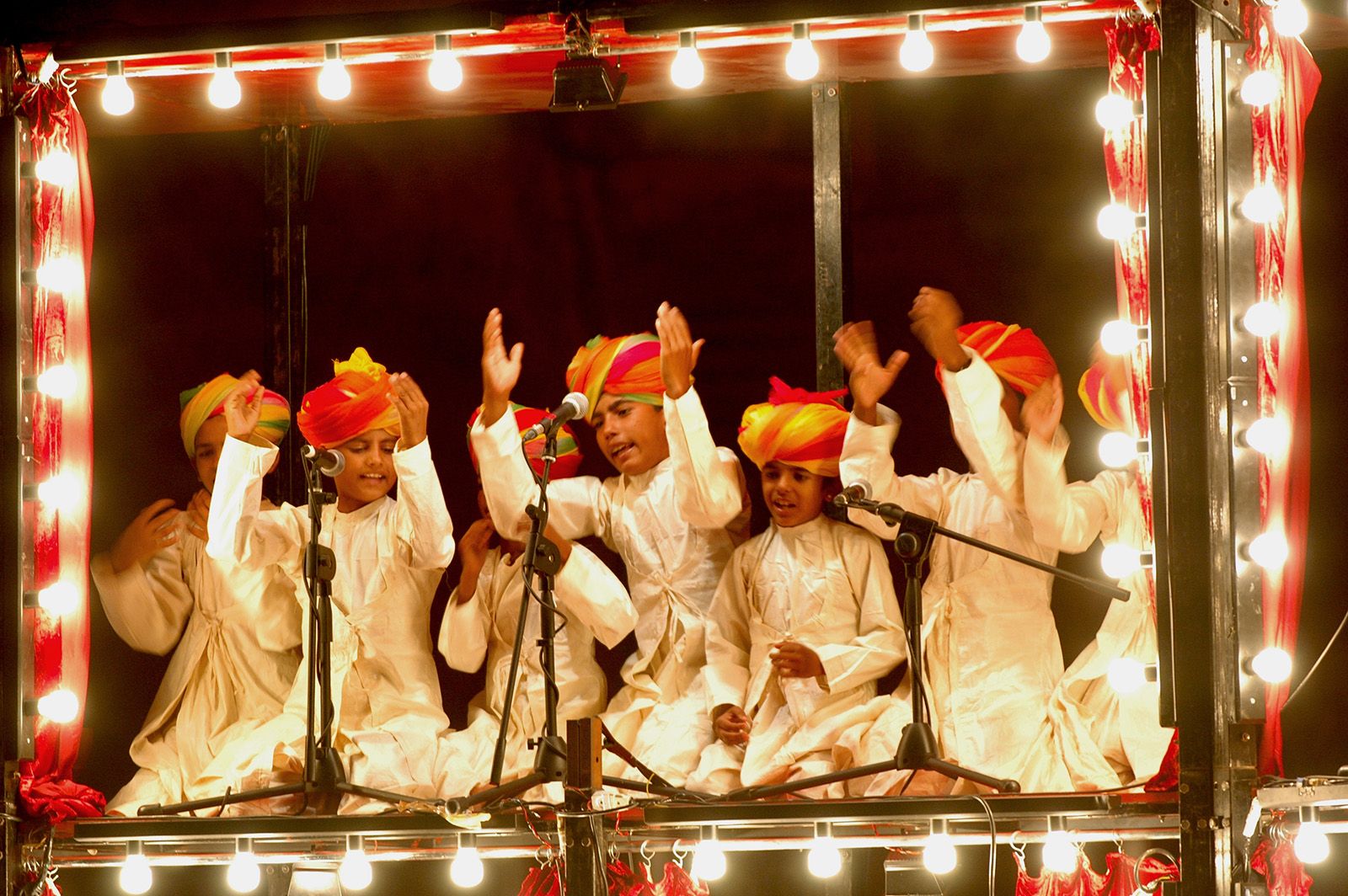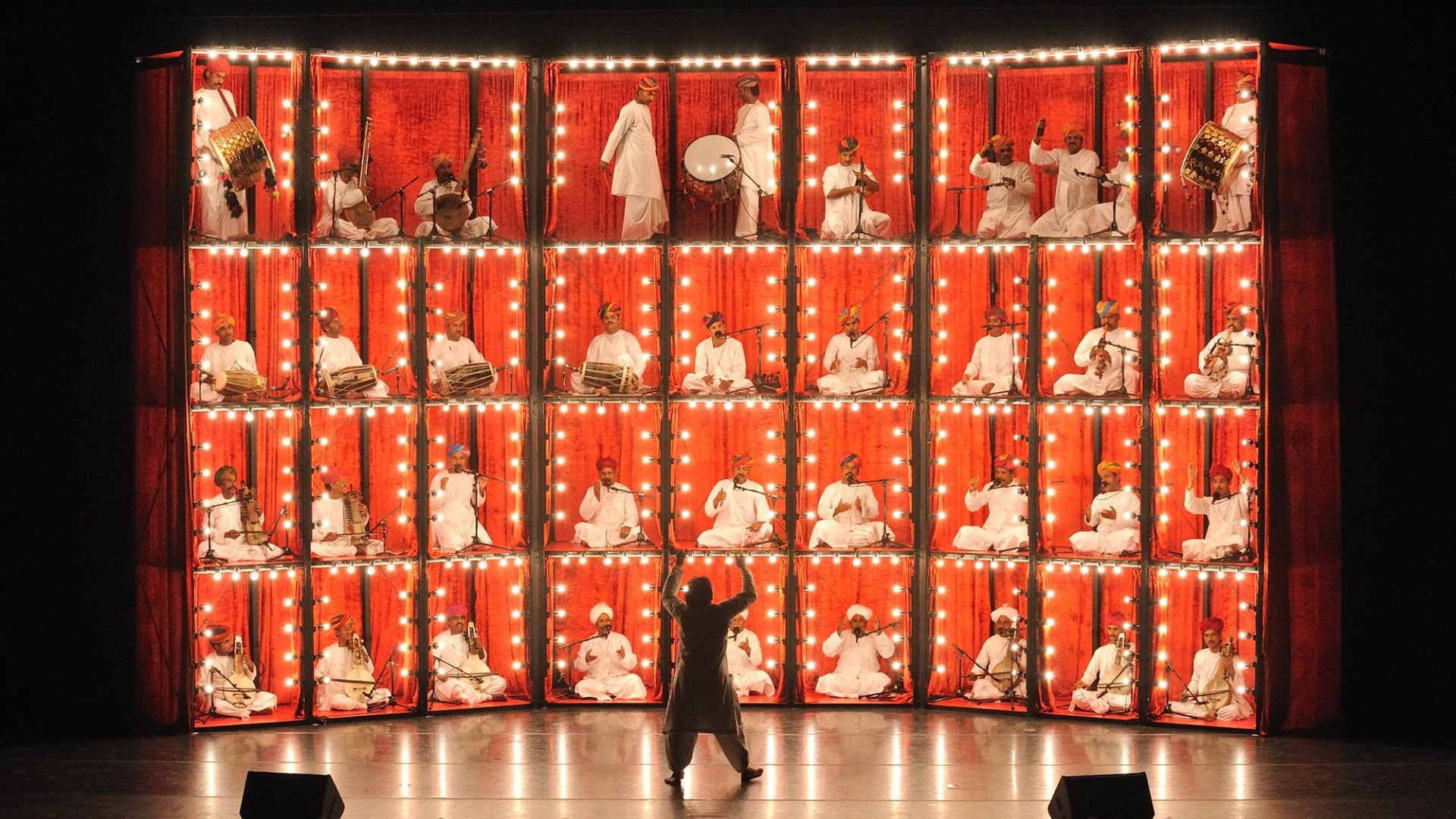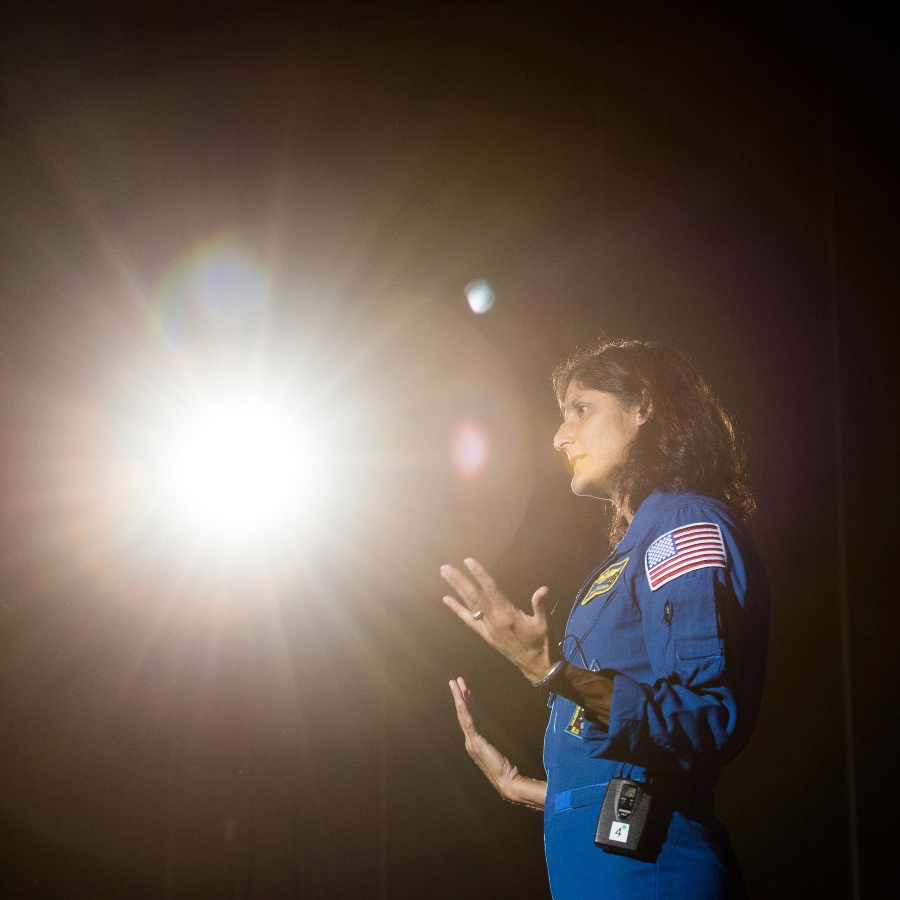“We stopped counting when we reached 500,” says director Roysten Abel when asked how many times The Manganiyar Seduction has been staged since its premiere in 2006. The show, which lies at the intersection of a Rajasthani folk music concert and a theatrical performance, has been presented in over 20 countries—from the US to the UK, France and Germany to Saudi Arabia and Australia—and won rave reviews everywhere. In 2010, The New York Times called the 70-minute production “rapturous”, “jaw-dropping” and “compelling”.
This week, the production will be staged at the Nita Mukesh Ambani Cultural Centre’s Grand Theatre on Saturday, May 31.
Perhaps Abel puts it best when he describes his conception simply as “a soul-felt audio-visual spectacle”. What we see on the stage is as arresting as what we hear from it. Seated in four rows, across 33 boxes, are 37 singers and instrumentalists on a gridded structure that’s 22 feet high and 36 feet wide. Each box is covered with a red velvet curtain and framed by vanity room-style lightbulbs that are opened and illuminated as and when it’s the musician’s turn to take the mic, as instructed by their khartal-wielding conductor.
This unique design, which weighs around 2,500 kgs and takes between six to eight hours to set up, was inspired both by Jaipur’s Hawa Mahal and Amsterdam’s red-light district. But the ‘seduction’ in the production’s title relates more to how the Manganiyars, folk musicians from Jaisalmer, Balmer and Jodhpur, captivate their audiences.

Although he had seen them before, Abel “really got introduced to the depth of their music” when he travelled across Spain with a pair of them for a tour of his production Jiyo (which also spotlighted out-of-work Indian street performers such as magicians, jugglers, puppeteers, snake charmers, and impersonators) in 2006.
For two weeks straight, they sang for him “24/7”, charming him with their powerful vocals and passionate delivery, and sparking in him the idea for a large-scale showcase of their skills. The two singers were Devu Khan, who has conducted The Manganiyar Seduction since its start, and Mame Khan, who was part of the ensemble for about 10 years and is now a star in his own right.
To put together the troupe of 40—comprising 16 vocalists, 22 instrumentalists plus two “all-rounders” who are always on standby—Abel spent almost a year auditioning over 1,000 aspirants from across Rajasthan. Selecting and arranging the songs they would render was an even more intricate process. “I’m not a trained musician and I look at music from a dramatic point of view,” he says. “I had to get the people who are witnessing it to travel through certain emotions and reach a particular place. [So] I just listened to song after song and said, let’s take this from here, let’s use this here [to form some sort of narrative].”
Notably, we hear only one ‘complete’ song—18th-century saint-poet Bulleh Shah’s Sufi classic ‘Alfat In Bin Un Bin’, which is performed from beginning to end, with excerpts of other tunes being weaved in throughout “as different emotions or scenes”. They are sung to the accompaniment of a wide range of instruments, such as the algoza, been or murali, dholak, kamancha, khartal, morchang or bhappang, Sindhi sarangi, and tambura.
This combination of music and drama proved so popular that, in 2013, it birthed a spin-off. The Manganiyar Classroom, featuring children from the community, ran for about half a decade. Abel now plans to make a film based on it, which he hopes to shoot at the end of this year, and revive its live show thereafter.
Though Manganiyars are typically referred to as folk musicians, Abel feels this doesn’t do full justice to their artistry. “They [know] so many ragas,” he says. “Where is all this gamak and all these murkis (vocal ornamentations) coming from? When they sang at royal darbars, [they were competing with khayal and dhrupad maestros and] if they had a chance of pleasing the king to win that amount or whatever would sustain them for six months to a year—whether it was horses, camels, gold, millet or rice—they had to make a mark amongst all these great musicians. They were very smart and borrowed elements from these forms to come up with new compositions. [Their music thus is] a hybrid of folk and classical.”
While The Manganiyar Seduction has enchanted standing crowds at multiple music festivals, Abel believes that watching it seated in an auditorium like the Grand Theatre provides “a more wholesome” experience. “Outdoors, there’s a larger number of people; they’re headbanging and there’s a little bit of alcohol involved, so it’s a different energy,” he explains. “In an indoor setting, the journey is more inward. You’re taking the spectacle within you.”
The Manganiyar Seduction will be staged at The Grand Theatre at the Nita Mukesh Ambani Cultural Centre at 8 pm on May 31. Tickets available here.





